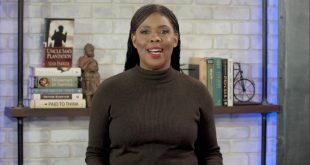 With so much at stake, millions of Americans still did not participate in the midterm elections this week.
With so much at stake, millions of Americans still did not participate in the midterm elections this week.
When the governing structure of our nation was put together, the Founders were excited about the prospect of a nation that placed the needs and desires of its citizens on a higher pedestal than those of the government itself. They also warned that it might be difficult to maintain such a government without it morphing into the usual “government knows best” model in place in most other countries of the world.
Some may think that a government that seldom interferes with the lives of its citizens and encourages entrepreneurship, growth, personal responsibility and independence is only wishful thinking and not practical. (They have resigned themselves to the ever increasing and controlling government we have now.) Nevertheless, the early years of America had such a government, and as a result, the nation rose from the habitat of an assorted group of courageous intellectuals supported by a ragtag militia in 1776 to the most dominant economic power in the world in less than 100 years.
What has created the malaise that characterizes so many potential American voters today? I have encountered hundreds of thousands of my fellow citizens on the road over the past year, and I have been struck by the level of animosity toward both major political parties and the feeling that nothing will improve — regardless of which party is in power. There is also a massive lack of trust in our federal government, which greatly dampens enthusiasm for voter participation. Many others feel that their single vote means nothing. Therefore, exercising their civic responsibility is a waste of time.
The real question for conservatives after the gains they have made is whether they are going to put forth an aggressive agenda with the goals of spurring economic growth, reestablishing global leadership, and providing encouragement and mechanisms for the downtrodden to capitalize on the ideas of personal responsibility.
They also should propose a well-defined and intelligible alternative to Obamacare, develop our abundant natural resources in an environmentally friendly way, and reform the monstrous tax code, among other things. Or are they simply going to try to block additional unconstitutional executive action and hope this will further endear them to the populace?
The problems we face are too serious and too numerous to put off addressing them until 2016. If we capitulate to frustration and tune out of the political process, we automatically further empower those who wish to fundamentally change our nation. Those of us with common sense and who love the values and principles that made us a great nation must not grow weary of the struggle that is required to ensure freedom and prosperity.
We must strive to re-involve the masses of our compatriots who have given up, using the promise of a nation where “we the people” compel the government through the political process in place to conform to our will. The next couple of years should be focused on citizen involvement and political activism in order to put forth a vision for our nation.
I don’t blame my fellow citizens for being discouraged, given the radical changes that have been forced upon our society by a vocal minority with great political expertise. Let us use that discouragement as the impetus to discard the laissez-faire attitudes that have permitted these fundamental changes in our identity. In doing so, we can reclaim the zeal that characterized our predecessors, who persuaded those within their spheres of influence to actively participate in the shaping of a great nation.
COPYRIGHT 2014 THE WASHINGTON TIMES
DISTRIBUTED BY CREATORS.COM
Photo credit: Joe Shlabotnik – Some Rights Reserved (Creative Commons)
 Dr. Ben S. Carson is professor emeritus of neurosurgery at Johns Hopkins University and author of the new book, One Nation: What We Can All Do to Save America’s Future.
Dr. Ben S. Carson is professor emeritus of neurosurgery at Johns Hopkins University and author of the new book, One Nation: What We Can All Do to Save America’s Future.
 CURE News and Clergy Blog News and Commentary for Christians
CURE News and Clergy Blog News and Commentary for Christians



